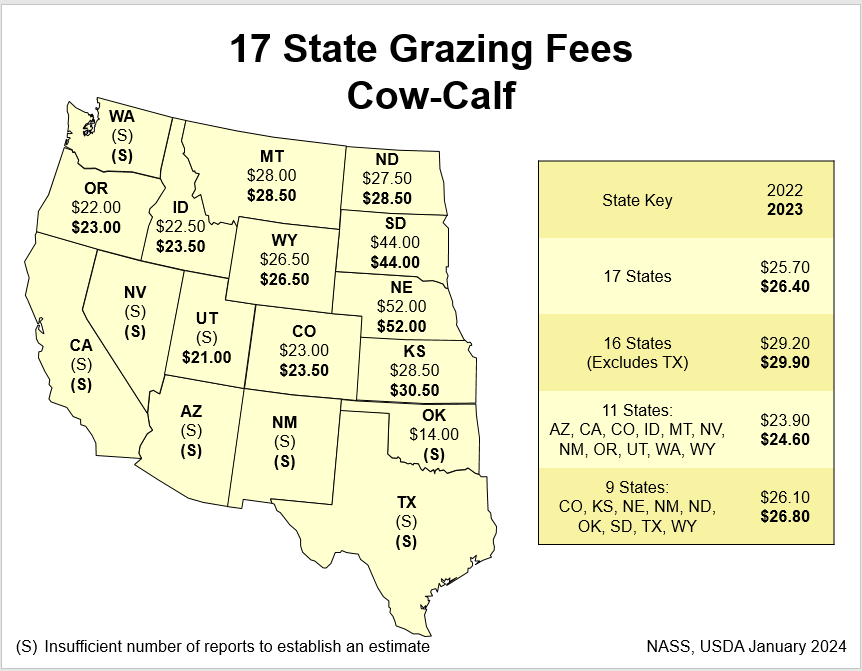Have you ever stopped to think about how much work those muscles in your lower leg, the ones we commonly call your calves, truly do for you every single day? It's really quite something, isn't it? These muscles are more than just a part of your leg's shape; they are, in a way, the quiet powerhouses that let you move about, explore your world, and simply get through your daily routine without much thought. We often take these incredible body parts for granted until, well, something feels a bit off, or maybe even quite painful. That's when we start to pay a lot more attention, as a matter of fact.
Your calf, that fleshy part at the back of your lower leg, plays a rather big part in how you interact with the ground beneath your feet. It's the engine, so to speak, that helps you lift your foot, point your toes, and push off when you walk or run. Without it working as it should, those simple actions, the ones you perform nearly without thinking, can become surprisingly difficult. It helps you keep your balance, too, which is just another aspect of its everyday importance. You might find yourself feeling a little less steady if your calf isn't quite up to its usual tasks, you know?
Sometimes, though, your calf might start to send you signals that something isn't quite right. It could be a sudden, sharp feeling, or perhaps a constant ache that just won't go away. These little alerts, or sometimes big ones, are your body's way of letting you know it needs some attention. When these feelings show up, especially if they make it hard to move or walk, it's a pretty clear sign that it's time to have a chat with someone who knows a lot about bodies and how they work, like a healthcare provider. They can help figure out what's going on and get you back to feeling more like yourself, you see.
Table of Contents
- What Does Your Calf Do For You?
- When Does Calf Pain Happen?
- Is That Calf Pain Something Serious?
- What Causes Your Calf to Hurt?
- Could Calf Pain Be a Sign of Something Else?
- When Should You Talk to a Healthcare Provider About Your Calf?
What Does Your Calf Do For You?
Your calf muscle, that rather noticeable group of muscles at the back of your lower leg, is actually a pretty big deal for everyday movement. It's not just there for show; it's a vital part of your ability to move your lower legs, your feet, and your ankles. Think about it: every step you take, every time you stand on your tiptoes to reach something high up, or even just shift your weight from one foot to the other, your calf is very much involved. It's always working, often without you even giving it a second thought, which is kind of amazing when you consider it. This muscle group allows you to bend your feet downwards, which is something we call flexing, and it's absolutely essential for things like walking across a room, going for a jog in the park, or even taking a little hop to get over a puddle. Basically, it's a key player in almost any movement that involves your lower body, you know?
The Calf's Role in Movement and Support - No Teary Moments Here
Beyond just helping you move, your calf also plays a really important part in keeping you steady and upright. It helps support your legs and gives them a certain stability, making sure you don't wobble too much when you're standing or walking. This support is quite important for maintaining your balance, especially when you're doing things like standing on uneven ground or trying to stay still. It's the kind of background work that goes on all the time, allowing you to perform all sorts of actions without falling over. So, when your calf is working well, you usually don't have any reason to feel upset or, you know, teary about your ability to move. It just does its job, quietly and effectively, letting you go about your day with a good sense of steadiness and ease, which is pretty much what we all want, isn't it?
When Does Calf Pain Happen?
Calf pain can pop up for all sorts of reasons, and sometimes it just feels like a sudden, unexpected twist or pull. Most of the time, when your calf starts to hurt, it's because of something fairly straightforward, like a muscle cramp that just won't let go, or perhaps a minor injury you didn't even realize you got. Think about those times you've stretched a little too far, or maybe pushed yourself a bit too hard during a walk or run; that's often when these kinds of pains show up. They can feel pretty uncomfortable, or even quite sharp, and they might make you want to stop whatever you're doing right away. It's your body's way of telling you to slow down and pay attention to that specific area. Usually, these sorts of pains are temporary and get better with a little rest and gentle care, which is a good thing, really.
The 'Hunch' of Calf Pain - What It Might Mean
Sometimes, though, that feeling in your calf can give you a sort of a hunch, a gut feeling, that something more might be going on. While cramps and minor injuries are common culprits, calf pain can, you know, also come from other issues that are a bit more serious. For instance, it could be connected to a problem with your blood vessels, like a blood clot, which is something that really needs quick attention. Or, it might be a nerve that's gotten pinched somewhere along the way, causing discomfort to shoot down into your calf. Tendon damage, where the tough cords connecting your muscles to your bones get irritated or hurt, can also be a source of that ache. There are, in fact, other issues too, that can lead to calf pain. So, if you have a strong feeling, a sort of hunch, that this pain is different or just won't go away, it's probably a good idea to listen to that inner voice and get it checked out, basically.
Is That Calf Pain Something Serious?
When you feel pain in your calf, it's natural to wonder if it's just a simple ache or something that needs more serious attention. Most of the time, a little calf pain is nothing to worry too much about; it often comes from using your muscles a bit too much or in a new way, like after a long walk or trying a different exercise. These kinds of pains usually settle down with some rest and maybe a little gentle stretching. However, there are times when calf pain can actually be a signal from your body that something more significant is happening. It's like your body is trying to tell you, "Hey, pay attention here!" Knowing the difference between a minor muscle protest and a more serious warning can be really helpful, you know? It's all about listening to what your body is trying to communicate, and sometimes, that message can be quite important for your overall well-being, actually.
When a Calf Problem Makes You Feel a Bit Teary
There are moments when calf pain can be so intense, or so persistent, that it actually starts to affect your mood and even make you feel a bit teary. This isn't just about the physical discomfort; it's also about how it impacts your daily life. If the pain is so bad that it stops you from doing things you normally enjoy, like going for a walk, playing with your kids, or even just getting around your house comfortably, that can be pretty frustrating. When your mobility is limited, it can understandably lead to feelings of sadness or worry. For instance, if your calf muscles aren't getting enough blood, a problem called claudication, your legs might hurt when you're active, and that can certainly make you feel quite down. This kind of pain, the one that truly interferes with your normal activities and makes you feel emotional, is a strong indicator that it's time to seek some professional advice. It's not just about the muscle anymore; it's about your overall comfort and peace of mind, basically.
What Causes Your Calf to Hurt?
The reasons why your calf might start to hurt are pretty varied, honestly. Sometimes, it's just a simple case of overdoing it, like when you push your muscles a little too hard without giving them a chance to get used to the activity. This could be something like a muscle strain, where the fibers in your calf get stretched or pulled a bit too much, or perhaps tendonitis, which is when the tendons that connect your muscles to your bones get irritated. These are fairly common and, you know, often respond well to a bit of rest and gentle care at home. However, the causes of calf pain can also be a lot more serious. It's not always just a simple muscle ache, you see. Sometimes, the pain can point to something that needs immediate attention from a medical professional, and it's important to be aware of those possibilities, too. Knowing the range of things that can cause calf discomfort can help you decide what to do next, which is pretty helpful.
Common Reasons for Calf Discomfort - No Fee for Knowing
Let's talk a little more about some of the usual suspects behind calf pain, without any hidden costs for the information, of course. As mentioned, muscle strains are a big one; they happen when the muscle fibers get overstretched or torn, often during physical activity. Then there's tendonitis, which is when the tendons around your calf become inflamed, usually from repetitive movements or sudden increases in activity. But it's also worth knowing that calf pain can signal more serious concerns. For example, a blood clot in the leg, which is a condition that really requires quick medical help, can cause significant calf pain and swelling. Another possibility is something called compartment syndrome, where pressure builds up within the muscle compartments, and that can be quite serious, too. There are also things like pinched nerves or problems with blood flow, which can manifest as pain in your calf. So, while many cases of calf pain can be managed with simple home care, it's good to be aware that sometimes, they really do need a doctor's immediate attention. This knowledge, you know, costs you nothing, but it could make a real difference.
Could Calf Pain Be a Sign of Something Else?
It's interesting to think about how a single symptom, like pain in your calf, can sometimes be a clue to a much bigger picture about your health. While we often think of calf pain as just a muscle issue, it can actually be a sign of other problems that aren't directly related to the muscle itself. For instance, as we talked about, issues with your blood vessels, like a blood clot, can cause pain in the calf because the blood flow isn't quite right. A pinched nerve, which might originate higher up in your back or hip, could send signals that result in pain or discomfort all the way down into your calf. Sometimes, even problems with your feet or ankles can put extra strain on your calf, leading to pain. It's like a chain reaction, you know? Your body is all connected, and a problem in one area can show up as pain in another. So, if your calf pain doesn't seem to fit the usual muscle strain pattern, or if it comes with other unusual feelings, it's worth considering that it might be pointing to something else entirely. It's just something to keep in mind, basically.
When Should You Talk to a Healthcare Provider About Your Calf?
Knowing when to seek professional help for calf pain is, you know, a pretty important part of taking care of yourself. While many minor aches and pains can be handled with rest and home remedies, there are certain signs that tell you it's time to pick up the phone and talk to a healthcare provider. If you suddenly experience severe pain in your calf, the kind that really stops you in your tracks, that's a pretty clear signal. Or, if you suddenly find it hard to move your leg, or if walking becomes really difficult or impossible, those are also big indicators. These kinds of symptoms suggest that something more than a simple cramp or minor strain might be at play. It's better to be on the safe side, as a matter of fact, and get it checked out sooner rather than later. A medical professional can properly assess what's going on and make sure you get the right advice or treatment, which is what you want, really.
Understanding When to Seek Help - The Real 'Fee' of Delay
Think about it this way: there's a sort of "fee" you might pay if you put off getting help for a calf problem that's actually serious. This isn't a monetary fee, but rather a cost in terms of your health and comfort. Delaying care for something like a blood clot, for example, could lead to much more significant problems down the line. If you're experiencing symptoms like a sudden, very painful calf, or if your calf looks red, swollen, or feels warm to the touch, or if you have trouble breathing along with calf pain, these are all urgent signs. These are the moments when immediate medical attention is truly needed. Waiting it out could mean a longer recovery, more discomfort, or even more serious health issues. So, understanding when to seek help, and doing so without hesitation, can actually save you from paying a much higher "fee" in terms of your well-being and ability to move freely. It's just a matter of prioritizing your health, you know?


